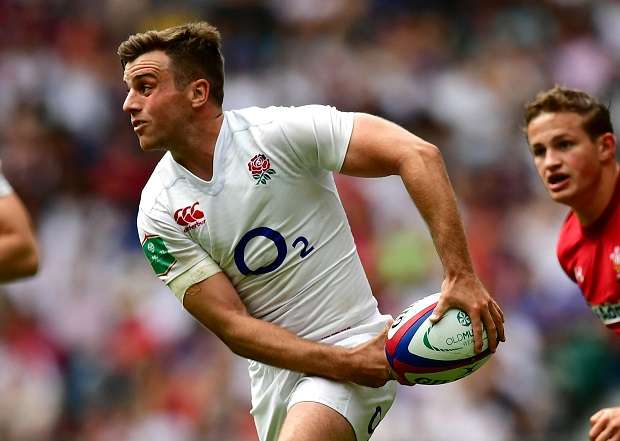
 Before George Ford played against Wales last weekend, Eddie Jones was asked whether Bath’s sacking of his father as their director of rugby would affect him. The England coach said he was convinced that Ford’s head was right, even though he had the options of giving Danny Cipriani a run at fly-half.
Before George Ford played against Wales last weekend, Eddie Jones was asked whether Bath’s sacking of his father as their director of rugby would affect him. The England coach said he was convinced that Ford’s head was right, even though he had the options of giving Danny Cipriani a run at fly-half.
Jones knows that George Ford is rugby through and through – a thinker who lives and breathes the game, but swims rather than drowns while being constantly immersed in it. He loves being involved in rugby, and analysing it, and he appears to be one of those guys who does not need to switch off.
I’d like to think I was mentally tough during my playing career in the sense that I could put different parts of my life into different boxes, and that enabled me to function on the field. To be at your best on the pitch you need to be positive and happy, enjoying life away from training and playing. George has had off days before regarding his kicking so I wouldn’t put his misses down to his dad being let go by Bath.
It’s probably more about frustration, because he’s going through the growing pains that all players do. He’s 23 now, but a long way from having the experience of a Dan Carter. He’ll be thinking, what’s the difference between this year and last? Why is it much harder, so topsy-turvey, and with speculation everywhere that Jones should jettison him at 10 for Owen Farrell?
And that’s why Eddie Jones sees this tour as essential to his continued development. Physically fly-half may not be too taxing, but mentally it’s a heavyweight position. However, Ford will be so much more knowledgeable when he comes back from this tour, and the result of having that experience under his belt against top end opposition like the Wallabies will help him to relax more going forward.
The problem for fly-halves is that other players are not always on their wavelength. For me, although Bath were struggling, Ford’s form in the Six Nations was good. The links in the backline had his trademarks of creativity, direction and support all over them. In the tour warm-up game against Wales at Twickenham, I don’t believe he played particularly badly.
Sure, the missed kicks against the Welsh showed that it takes time to get out of the club funk after two and a half months. But that was well-handled by Jones, and I cannot see why on his overall displays for England this season the coach would drop him from the starting line-up for the first Test against Australia in Brisbane.
I also expect things to remain the same in the back three. On the left wing Jack Nowell has been one of the team’s top performers, and seems to have taken leaps and bounds in conditioning. He is stronger, quicker and sharper. My only criticism is that he could be a tad more direct, and look for the pass rather than side stepping and jinking away from defenders. He has to look for the continuity that keeps him in the game longer, rather than going to ground.
Anthony Watson continues to make gains on the right wing. Watson has added increased power to his pace and always seems to make an impact – he has stepped up to another level. Neither of these guys are the biggest wings, but their size/weight to speed ratio is very impressive and gets them out of trouble. However, both of them need to work on being a bit more inclusive in order to give added value to the team in attack.
It would also be a surprise to me if Jones moved away from Mike Brown as his starting full-back. Brown has showed great consistency for England, and while Alex Goode is a very good player with unbelievable vision and a high skill set, the European Cup final in Lyon wasn’t his greatest day.
For all Goode’s line-breaks, defenders beaten and vision, Brown appears to be more solid. There are a couple of times when we’ve questioned Brown’s decision-making in attack, but he has the reputation of being one of the best catchers of the high ball in international rugby, and has also been a threat as a counter-attacking runner.
It’s tough, because the Saracens full-back has been very impressive. However, when he has had opportunities they haven’t always been taken. Goode got caught up a bit in the 2015 defeat by Ireland in Dublin, although he was one of many who made mistakes under the Irish high ball bombardment. It’s a reality that the international game is becoming more aerial, and Brown is so safe under the high ball – and it’s also a reality that while Goode deserves a chance, Brown doesn’t deserve to be left out.
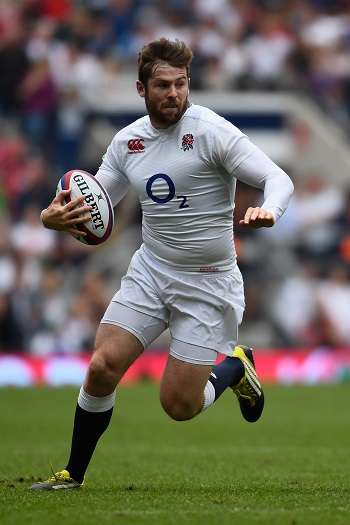 My big change in the backline would be to give Elliot Daly right, left, a run at outside-centre. As quick and elusive as Jonathan Joseph is, he is not always the best passer, and I also relate to Daly’s running lines – which are more forward than across – because he does what I used to do. Daly sees the gap and goes before he gets the ball, and expects the fly-half to deliver the ball into the space, and Ford is on the same wavelength. By contrast, Joseph tends to wait until he gets the ball and then uses a jink-and-go, which is across and then forward, to beat defenders.
My big change in the backline would be to give Elliot Daly right, left, a run at outside-centre. As quick and elusive as Jonathan Joseph is, he is not always the best passer, and I also relate to Daly’s running lines – which are more forward than across – because he does what I used to do. Daly sees the gap and goes before he gets the ball, and expects the fly-half to deliver the ball into the space, and Ford is on the same wavelength. By contrast, Joseph tends to wait until he gets the ball and then uses a jink-and-go, which is across and then forward, to beat defenders.
Added to that Daly is a long range goal-kicker, and also a handy tactical kicker. It’s another hard call, because Joseph does not deserve to be dropped – but I’d make the change.
Then it gets hard, because every inside-centre option bar Owen Farrell is an unknown. Ben Te’o didn’t run hard and straight into the Connacht defence in the Pro12 final, and still looked to be feeling his way into union. Somebody should say to him, mate, think of yourself running at the fly- half and inside-centre as if you were a bowling ball going into skittles. That’s something we haven’t seen since Will Carling, and then Mike Tindall, but Te’o has the physique to do it.
Luther Burrell scores tries – as he did on his return against the Welsh – and that keeps him in contention. There were doubts in the last regime about his defence, and about his ability to stay in the game for longer periods – and the second bit is also true of Te’o.
That can be put right, as can Ford’s goalkicking, and my backline to take on the Wallabies in Brisbane would be: Youngs, Ford; Nowell, Te’o, Daly, Watson; Brown. That would leave Farrell – the man you’d put your house on as a goal-kicker – on the bench. However, I would also have no problem with the backline that I believe that Eddie Jones will pick, which is the Grand Slam line-up of: Youngs, Ford; Nowell, Farrell, Joseph, Watson; Brown.
Henry Slade is missing from both those line-ups. The versatile Exeter back had an unfair rap after the Premiership final against Saracens, but it does highlight the question of where you play him. My view is that eventually he will be a really good fly-half or inside-centre, in the same way Matt Giteau has been. For Slade it starts at Exeter, and going from being a utility who plays where he’s asked, to putting his marker down as a 10 or 12 – and I think he’s more of a 10.
In the pack you start with Maro Itoje and George Kruis as a locking combination that has become one of the best in international rugby, and Billy Vunipola picks himself at No.8. The front-row also has a tried and tested look with Mako Vunipola and Dan Cole propping either side of Dylan Hartley, although Matt Mullan didn’t do too badly against Wales at loosehead.
It’s hard to justify changing either Chris Robshaw (6) or James Haskell (7) at flanker, because Jack Clifford played at No.8 against Wales, and has not really been used much at No.7 this season. He might bring more speed, but it was not clear how effective he was at getting down and dirty against the Welsh, while Teimana Harrison looked as if he was finding his feet, which is what you’d expect.
Robshaw is a workaholic, and an experienced operator, while Haskell is gnarly, and has worked his socks off. He is mentally tough and drives himself very hard, and you cannot underestimate that.
My only reservation about England going into this Test series is that we won’t know how tired they are, because the intensity of the Premiership is increasing every season. We nearly saw Saracens fall off the end of the cliff in the final against Exeter when their energy levels seemed to drop in the second half, before they regained momentum through Goode’s try late on.
I’m interested to see if England can raise the energy levels and generate real intensity, because it will require pushing their conditioning to a new level. Can they find that knock-out punch against one of the best sides in the world for three weekends in succession?


Latest News
Super Rugby Americas: Round Ten Review

British and Irish Lions
British and Irish Lions: Biggest winners and losers from Andy Farrell’s selection

















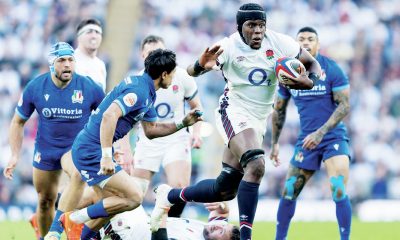

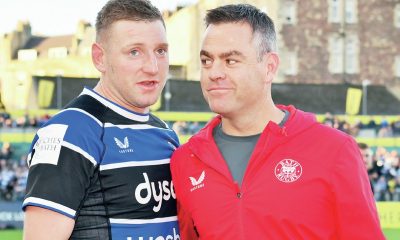

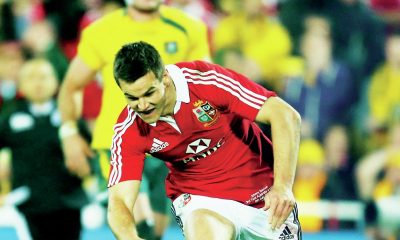

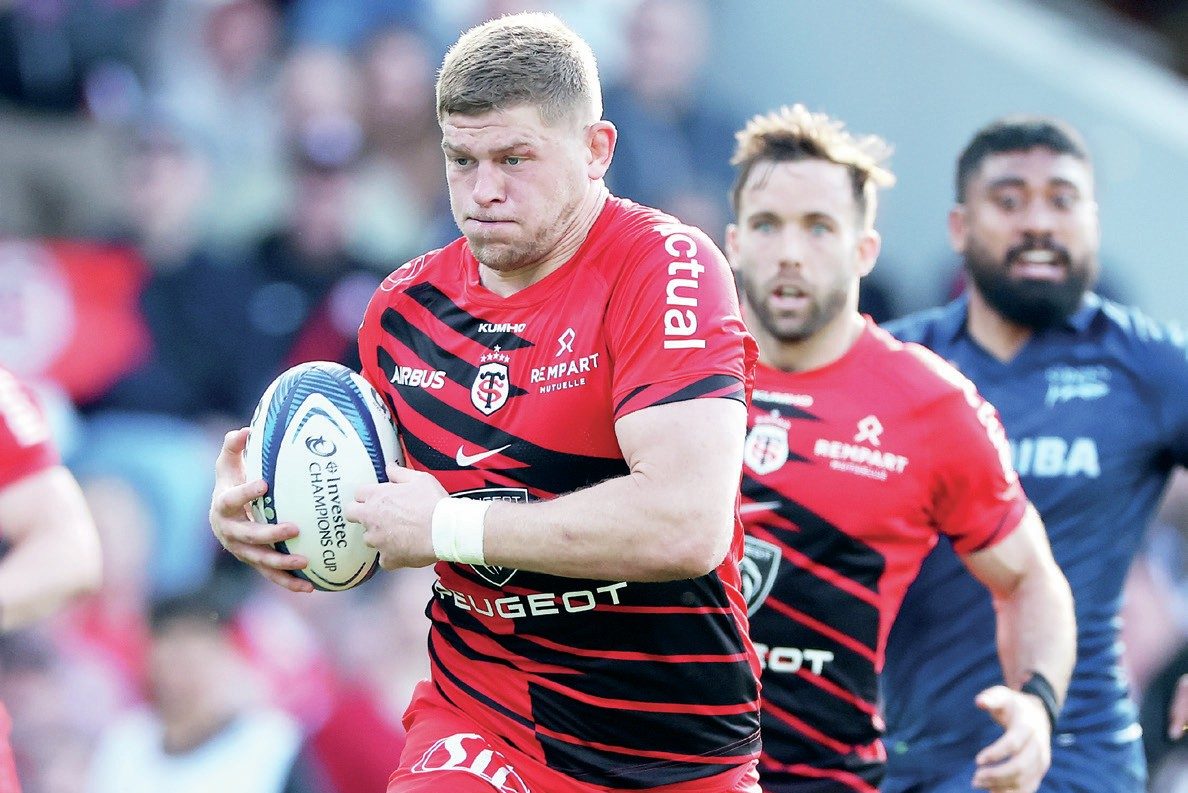
You must be logged in to post a comment Login